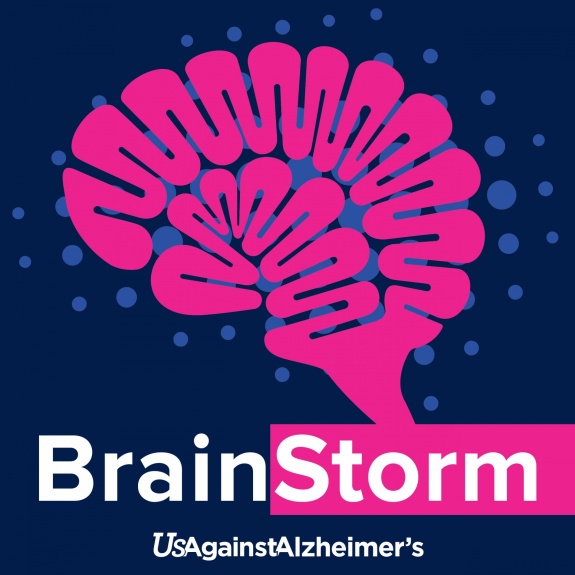Subscribe on your favorite player
Listen on Apple Podcasts Listen on Spotify Listen on Stitcher Listen on Google PodcastsWomen, Alzheimer's & Reducing Your Risk - Dr. Richard Isaacson & Karen Segal

About This Episode
For our January Alzheimer’s Talks, Brooks Kenny, Executive Director of our WomenAgainstAlzheimer’s network, spoke with Dr. Richard Isaacson, founder of the Alzheimer’s Prevention Clinic at NewYork-Presbyterian/Weill Cornell Medical Center. Joining him was Karen Segal, an UsAgainstAlzheimer’s board member who is participating in a research study Dr. Isaacson is leading.
Karen shared her experiences as an Alzheimer’s care partner to her mother and her reasons for joining the study. Dr. Isaacson’s discussed his exciting work helping patients reduce Alzheimer’s risk and his research into lifestyle changes to prevent or delay Alzheimer’s, including a study of Alzheimer’s in women, seeking brain changes that occur long before symptoms do.
CLICK THE PLAY BUTTON AT LEFT TO HEAR THE FULL DISCUSSION.
One in three cases of Alzheimer’s may be preventable: As with heart disease and stroke, we may never prevent all cases of Alzheimer’s, but you can reduce your risk. Alzheimer’s starts decades before symptoms appear, allowing lots of time to take steps to prevent or delay symptoms. (For the other two of three cases, if we can delay it even a few years, an effective treatment may be available then.)
Lifestyle changes can reduce your risk. Your genes are not your destiny. Modifiable risk factors include diet, exercise, sleep, stress reduction, cognitive engagement, and management of diabetes and heart health. In recent studies, even those with higher genetic risk could delay or prevent cognitive decline through nutrition, exercise, cognitive exercises and managing heart health.
Women, menopause and Alzheimer’s—what’s the connection? Two of three people with Alzheimer’s are women, and it’s not just that women live longer. Dr. Isaacson is studying changes in brain metabolism before, during and after menopause that may offer clues.
Clinical trials put you in the driver’s seat. Karen Segal shared her experience as a participant in Dr. Isaacson’s study: regular bloodwork, cognitive testing, brain imaging, and diet and exercise monitoring. She knows current research can’t save her mother, who has had Alzheimer’s for 15 years, but it may save younger generations: “The first person cured of Alzheimer’s will be in a clinical trial.”
RESOURCES SHARED DURING THE CALL
Alzheimer’s Universe: www.alzu.org Learn more about prevention, treatment, caregiving. Free online lessons & activities. Created by Weill Cornell Medicine, NewYork-Presbyterian and many researchers.
Alzheimer’s Prevention Clinics:
Alzheimer’s Prevention Clinic, NewYork-Presbyterian/Weill Cornell Medical Center, New York, NY
Alzheimer’s Risk Assessment and Intervention Clinic, Univ. of Alabama at Birmingham, Birmingham, AL
Alzheimer’s Prevention Program, Loma Linda University Medical Center, Loma Linda, CA
Center for Brain Health, NorthShore University Health System, Chicago, IL
Dr. James Galvin, Comprehensive Center for Brain Health, Florida Atlantic University, Boca Raton, FL
Evidence-based Diets: Mediterranean diet or MIND diet
Find Alzheimer’s clinical trials: Brain Health Registry & ClinicalTrials.gov
Our thanks to Karen Segal and Richard Isaacson for sharing their great insights and information. You can also read a full transcript of the conversation.
